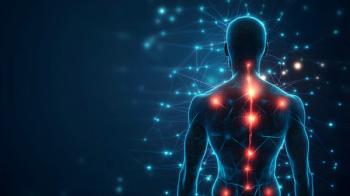
- Vol 37, Issue 11
- Volume 37
- Issue 11
Addressing Pain in Patients With Bipolar Disorder
The psychiatric prescribing clinician may be called upon to treat pain comorbid with bipolar disorder.
BIPOLAR UPDATE
Do you think of duloxetine when your patient with depression (bipolar or otherwise) reports chronic pain? The psychiatric prescribing clinician may be called upon to prescribe medication for the pain or may be asked by the primary care clinician or pain clinic if certain pain medications would be acceptable considering bipolar comorbidity. Or, those clinicians may go ahead and prescribe duloxetine or amitriptyline without even notifying you.
A previous
Although some antidepressants (eg, duloxetine) are approved by the US Food and Drug Administration for use in pain syndromes like fibromyalgia, diabetic neuropathy, and chronic musculoskeletal pain, it is also important to recognize the evidence shows they are minimally effective in addressing pain in patients with depression. The great majority of patients in studies of these pain conditions were not depressed. Four meta-analyses reviewed by
Duloxetine was extensively marketed based upon its FDA indications for pain management treatment and became a multi-billion-dollar product (until its patent expired and it became generic), but review authors concluded that this economic activity was not justified by the evidence. There is no reason to think of it as the go-to medication for a depressed patient with pain difficulties. Further, a Cochrane review of depression studies found that the dropout rate with duloxetine was higher than with escitalopram or venlafaxine, possibly due to greater adverse effects.5 If the patient is not depressed and has these pain syndromes, duloxetine may play a role. The meta-analyses did find a correlation between improvement in depression and improvement in pain.4 This suggests that choosing medications (unlike duloxetine) that work in bipolar depression (eg, FDA-approved options) may result in some improvement in pain.
Cannabis is being considered for treatment of pain as an alternative to opioids.6 We discussed in the April 2020
Medications with reasonable evidence of modest efficacy for pain that do not exacerbate symptoms of bipolar disorder include acetaminophen; non-steroidal anti-inflammatory agents (stronger than acetaminophen—but be careful about the interaction with lithium to raise lithium levels); gabapentin (no efficacy for mood swings, though); pregabalin (may work when gabapentin fails, possibly because of genetically based transporter-related interactions); and carbamazepine (for trigeminal neuralgia and possibly other kinds of pain). It should be stressed that there are many non-pharmacological strategies for pain management, such as mindfulness training, physical activity and therapy, massage, and acupuncture (
Dr Osser is associate professor of psychiatry, Harvard Medical School, and consulting psychiatrist, US Department of Veterans Affairs, National Telemental Health Center, Bipolar Disorders Telehealth Program, Brockton, MA. He is a member of the Psychiatric TimesTM Editorial Board. The author reports no conflicts of interest concerning the subject matter of this article.
References
1. Osser DN. The
2. McGirr A, Vöhringer PA, Ghaemi SN, et al. Safety and efficacy of adjunctive second-generation antidepressant therapy with a mood stabilizer or an atypical antipsychotic in acute bipolar depression: a systematic review and meta-analysis of randomized placebo-controlled trials. Lancet Psychiatry. 2016:3:1138-1146.
3. El-Mallakh RS, Vöhringer PA, Ostacher MM, et al.
4. Gebhardt S, Heinzel-Gutenbrunner M, König U.
5. Cipriani A, Koesters M, Furukawa TA, et al. Duloxetine versus other anti-depressive agents for depression. Cochrane Database Syst Rev. 2012;10:CD006533.
6. Humphreys K, Saitz R. Should physicians recommend replacing opioids with cannabis? JAMA. 2019;321(7):639-640
7. Osser DN.
Articles in this issue
about 5 years ago
Discharge Planningabout 5 years ago
Patients Like Telehealth, But Barriers Still Persistabout 5 years ago
Nitrous Oxide and Alexander Hamilton’s Grandsonabout 5 years ago
Psychiatry’s Role in the Management of Chronic Painabout 5 years ago
Sleep Disturbances as a Sequalae of Chronic Painabout 5 years ago
What’s in a Name: The Problem with Zero Suicideabout 5 years ago
Treating Dementia Patients in the Time of COVIDabout 5 years ago
Can Exercise Decrease Mortality Risk in Patients With Depression?Newsletter
Receive trusted psychiatric news, expert analysis, and clinical insights — subscribe today to support your practice and your patients.






